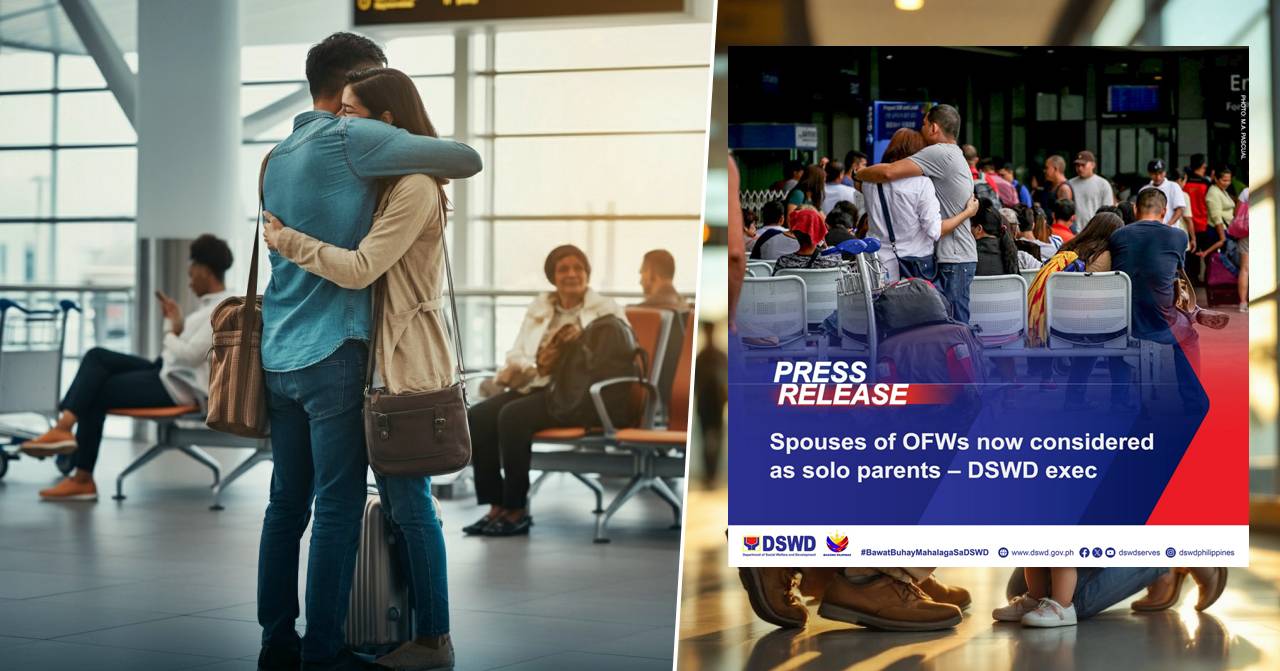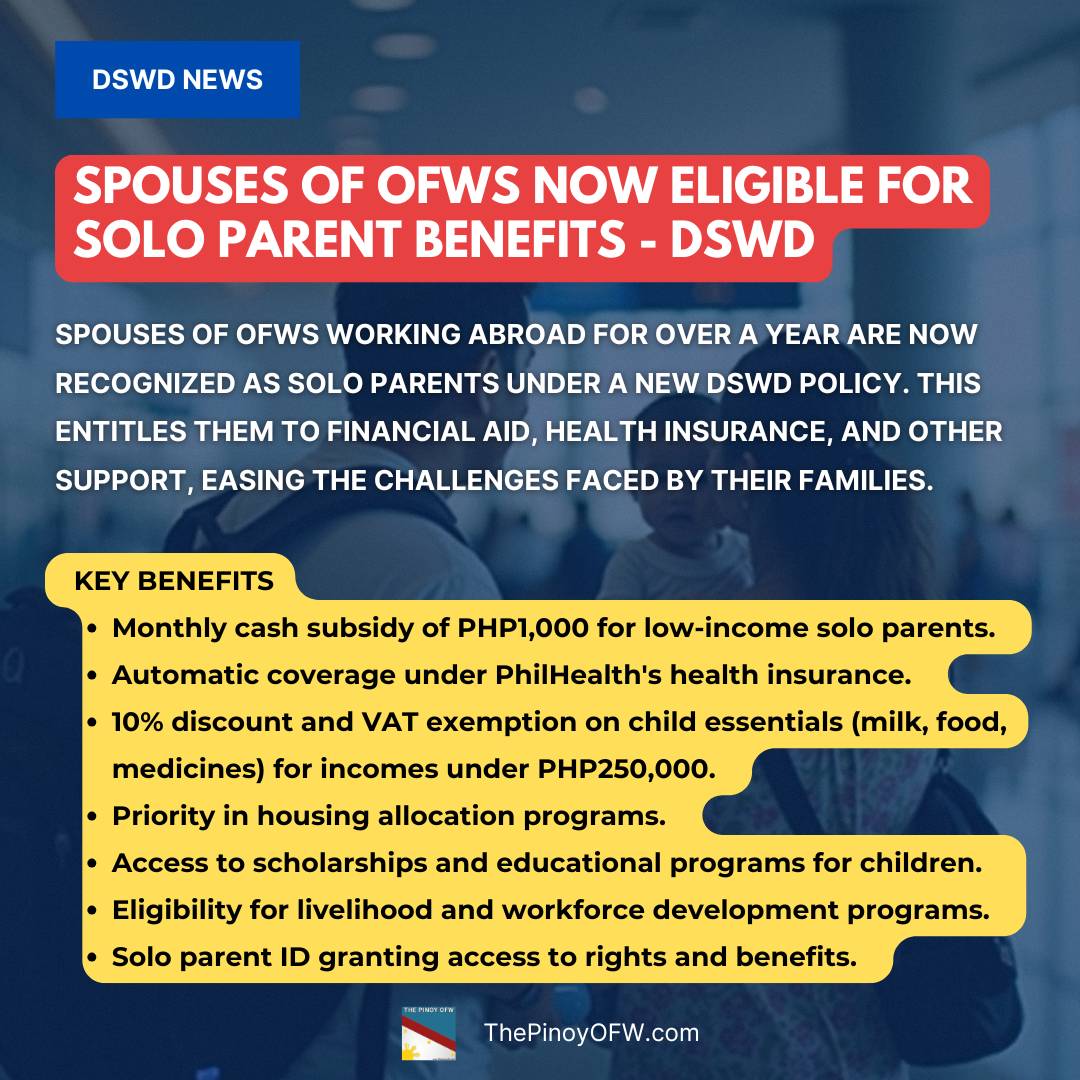The Department of Social Welfare and Development (DSWD) has confirmed that spouses of Overseas Filipino Workers (OFWs) working abroad for one continuous year, particularly in low or semi-skilled categories, are now recognized as solo parents. This announcement was clarified during a media forum led by DSWD Assistant Secretary Ada Colico, as reported by the Philippine News Agency (PNA) in their April 2025 coverage (source: PNA Article).
The updated policy is part of the Expanded Solo Parents Welfare Act (RA 11861), which aims to better address modern family challenges. By officially identifying OFW spouses as solo parents, the government acknowledges the unique struggles faced by individuals managing households and caregiving responsibilities while their partners work overseas.

Inclusive Definition of Solo Parents
The Expanded Solo Parents Welfare Act significantly broadens the scope of who qualifies as a solo parent. Previously, solo parent status was tied to circumstances like abandonment, annulment, or the death of a spouse. However, the law now covers more contemporary family situations, including OFW spouses left to independently care for their children.
According to Assistant Secretary Colico, the key qualifications for this category include the following:
- The OFW must be continuously working abroad for at least one year.
- Spouses qualify as solo parents even if they receive financial support from the OFW, provided they are solely responsible for caregiving.
Key Update Introduced:
- Unlike the prior definition, this change considers the absence of an OFW parent due to overseas employment as sufficient grounds to recognize the custodial spouse as a solo parent, broadening eligibility.
This is not the only group targeted by the amendments. The law also includes legal guardians, adoptive parents, relatives assuming caregiving duties, and pregnant women responsible for their unborn child.
Benefits Available to Solo Parents
With their new status, eligible OFW spouses can access several financial and social benefits provided under RA 11861. These include:
- Cash Assistance: Solo parents earning minimum wage or less can receive a ₱1,000 monthly cash subsidy from their local government units (LGUs).
- Health Coverage: They get automatic enrollment in PhilHealth’s National Health Insurance Program.
- Discounts: Those earning below ₱250,000 annually get a 10% discount on essential items like milk, food, medicine, and diapers for children up to six years old.
- Housing and Employment Priority: Solo parents are given priority in low-cost housing programs and workforce opportunities.
- Educational Support: They and their children qualify for scholarships and educational assistance from DepEd, CHED, and TESDA initiatives.

Registration and Accessibility
To access these benefits, solo parents must first register with their respective LGU’s municipal or city social welfare offices. The DSWD emphasized that the issuance and renewal of solo parent IDs fall under LGU jurisdiction, providing localized support and ensuring funds and services are appropriately allocated.
Annual renewal is required to maintain eligibility, and registration is vital for documentation purposes to ensure all benefits are received.
A Step Toward Recognizing OFW Families’ Sacrifices
This policy change sends a strong message about the government’s commitment to alleviating the challenges faced by OFW families. Spouses, who often assume the dual role of caregiver and breadwinner in the absence of their partners, now have their struggles recognized and supported through tangible aid programs.
By broadening the definition of solo parents, the government acknowledges modern family dynamics while emphasizing the importance of resilience and dedication in raising healthy families. For OFW spouses, this is not just a legislative change but a validation of their crucial role in maintaining the balance between family and daily life responsibilities.